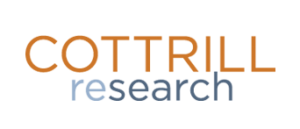Procurement can use the spirit of the Open Access/Knowledge movement to serve as inspiration for strategically advancing its perceived value to the organization. It would serve procurement well to recognize the value and continuing importance of intelligence creation. Procurement needs to proudly put its shingle out declaring that it is in the business of creating supply market intelligence. Not only is it in the business, but also the expert.
An old tradition and a new technology have converged to make possible an unprecedented public good.1
The Open Access movement started slowly within the scientific academic community and brought with it “the promise and potential of a shining new digital landscape, in which knowledge is freely shared and freely used, and the pace of scientific discovery is accelerated for the benefit of all.”2 Open Access is a publishing model that provides barrier-free access to quality research articles. No subscription is required, access is immediate, and readers may openly copy, distribute, and use the work as they wish (with attribution to authorship).3 The movement is in response to the many inadequacies associated with published scholarly research. Academic publishing has been criticized for creating extreme subscription price escalations in recent years and the subsequent access gaps created due to forced cancellations. Harvard’s Peter Suber writes in his book, Open Access, “The deeper problem is that we donate time, labor, and public money to create new knowledge and then hand control over the results to businesses that believe correctly or incorrectly, that their revenue and survival depend on limiting access to that knowledge.”4
Moving from Pull to Push
The Procurement community has been seeking ways to transform itself in more meaningful ways to the organization as a whole. The initiative of creating intelligence and openly sharing it, based on procurement’s unique perspective, might just be the disrupter to jumpstart transformation. Abby Clobridge, in a recent article, writes about her experience with Open Access transformation in her professional community: “However, regardless of terminology, digital repository work was taking the old model of libraries and flipping it on its head. Instead of focusing our attention on collecting, organizing, and describing knowledge captured in books and journals to make it more discoverable by our users, we were taking materials that members of our own community created and sharing them with the world. In short, we were moving from a pull model to a push model, a move that has completely disrupted and transformed the information and knowledge ecosystem.”5
Procurement has in its grasp, the opportunity to push discoverable intelligence to its community (fellow professionals, internal stakeholders, and the organization as a whole) that has been created from a unique perspective. This perspective utilizes internal intelligence, such as historical spend data, forward looking budgets, and corporate growth strategies, combined with external market intelligence acquired through targeted research efforts using authoritative resources.6 In essence, procurement does not wait for opportunity but eagerly anticipates the market intelligence needs of its internal stakeholders and the organization as a whole. Procurement can and should position itself as the expert creator and curator of crucial intelligence that provides true competitive advantage.
